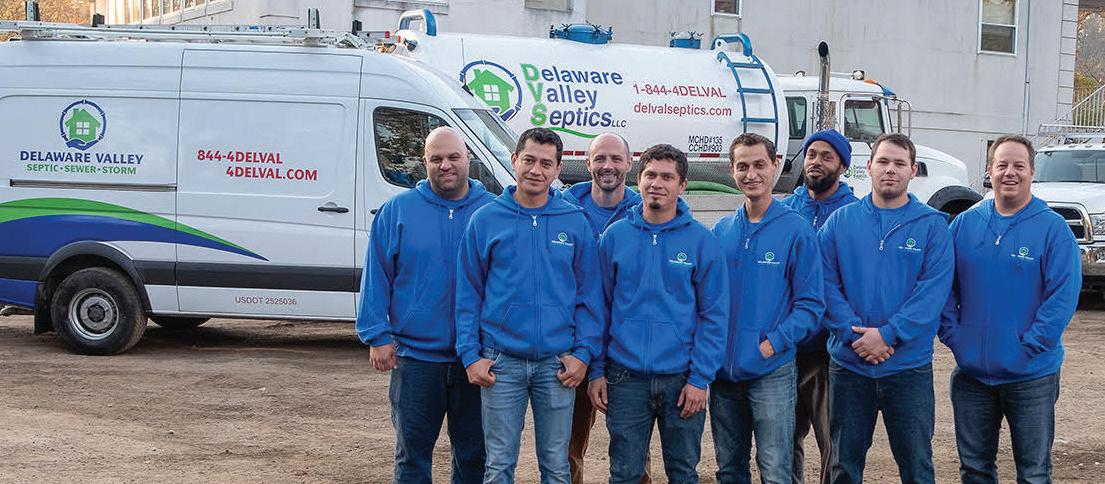
2 minute read
Converting From Septic to Sewer?
by Expert Contributors Dave DiGregorio & TJ Dell’Arciprete, Owners of Delaware Valley Septic, Sewer & Storm
One of the many exciting changes happening in Newtown Square is the installation of the new sewer system. This will be great for homeowners whose home has a septic system that’s not working properly or has real estate inspection issues. The first phase of the project, in Echo Valley known as the Ashford Project, is scheduled to be completed by May 2020.
Whether you’ve decided to connect as soon as possible, defer connection or somewhere in-between, there’s an initial tapping fee of $6,950. If you defer connecting to the public sewer, you’ll need a certification report annually, which would be allowed for up to 10 years. If the home is sold or the existing septic system is found unsatisfactory, you must connect to the public sewer.

Converting from on-site septic to public sewer involves more than just running a new pipe. When preparing to make the underground improvements, meeting on-site with your contractors and discussing the installation in detail is necessary to identify all obstacles and concerns and minimize surprises.
Most homes will connect via gravity. However, if the existing sewer line leading to your septic system is unable to reach the public sewer via gravity, a pump station will have to be installed. If installed correctly, a new gravity PVC sewer main is virtually maintenance free. With a gravity sewer line, you’ll never have to worry about power outages, pump, float or electrical connection failures needing maintenance or repairs to avoid backups into your home. For a family of four, the pump station will typically operate twice every day. If your home has to utilize a pump station, most contractors use an “e1” pump station (short for manufacturer environmental one). The average life of a pump station is 10 years and may require maintenance.
Whenever you do connect, make sure your current septic system is abandoned correctly. Properly decommissioning a septic tank or cesspool is as important as the sewer installation. You don’t want to deal with any surprise sinkholes or cave-ins later when existing components eventually deteriorate and collapse. If you have drainage or seepage fields, nothing needs to be done, but to avoid potential problems, discuss with your contractor how such areas will be handled.
Homeowners are often very concerned about how their property will look after the sewer connection job. Grass always grows back, plants can be put back, paver patios and driveways can be reinstalled. Such items should be discussed with your contractor so you know your property will be restored.

Expert Contributor Dave DiGregorio of Delaware Valley Septic, Sewer & Storm

Expert Contributor TJ Dell'Arciprete of Delaware Valley Septic, Sewer & Storm
Delaware Valley Septic, Sewer & Storm
Newtown Square’s Experts for Septic, Sewer & Storm Services!
610-947-4800
www.4DelVal.com
For over 30 years, this family-run business has been prioritizing customer service and providing reliable Septic, Sewer and Storm services. Our services include: Septic, Sewer & Storm Water Installations • Septic & Sewer Inspection • Septic & Storm Pumping • Sewer & Drain Cleaning • Repairs & Maintenance.

The hard-working crew of Delaware Valley Septic, Sewer & Storm
504 Eagle Road, Suite B, Springfield
info@4DelVal.com










